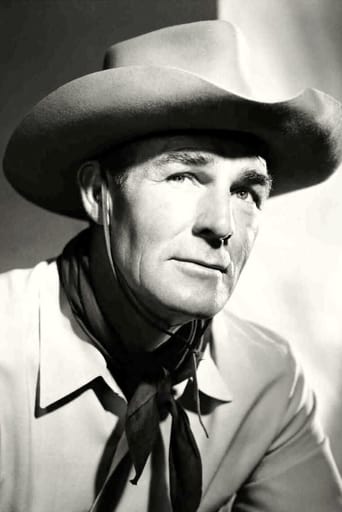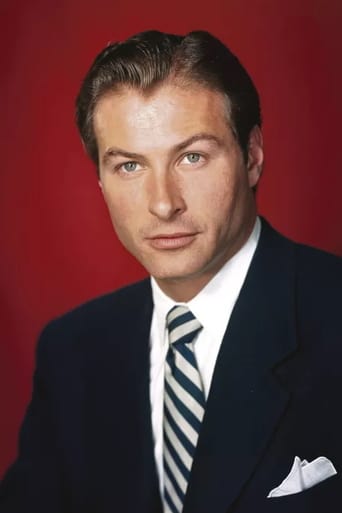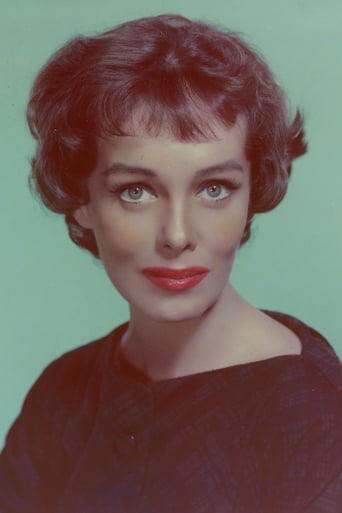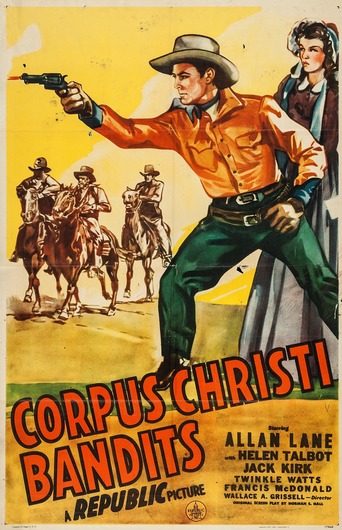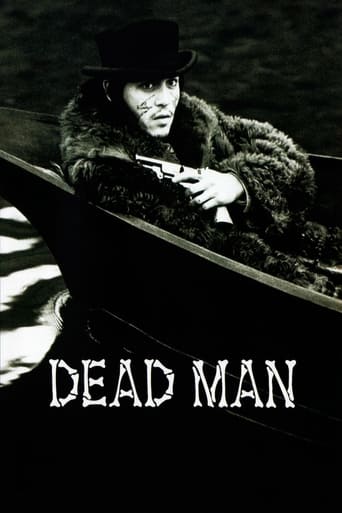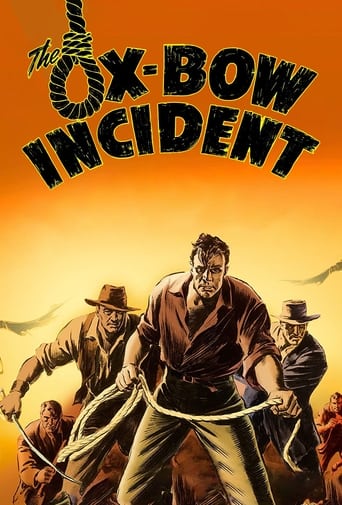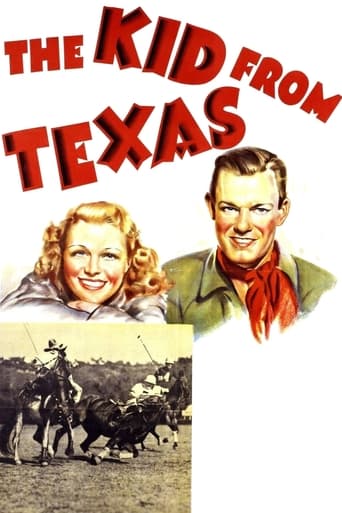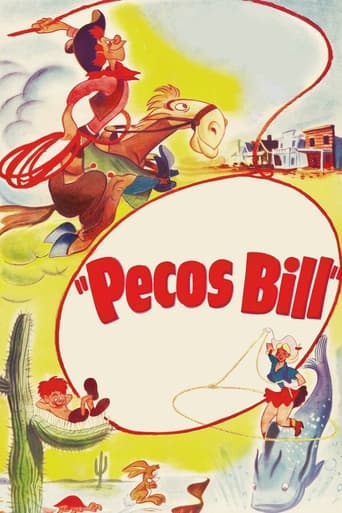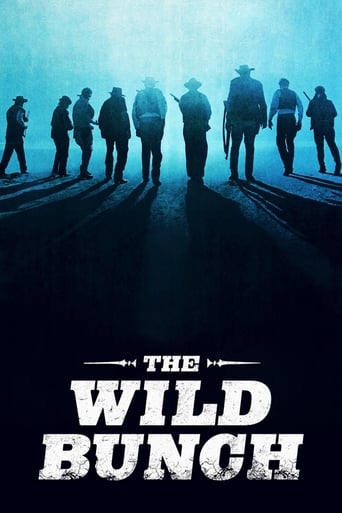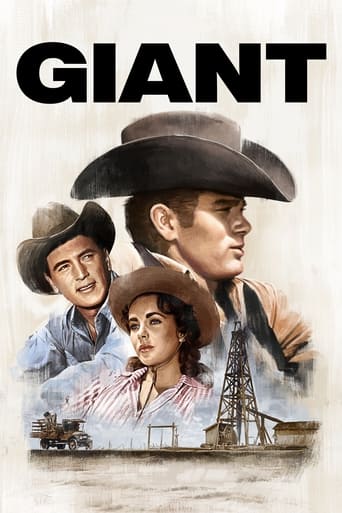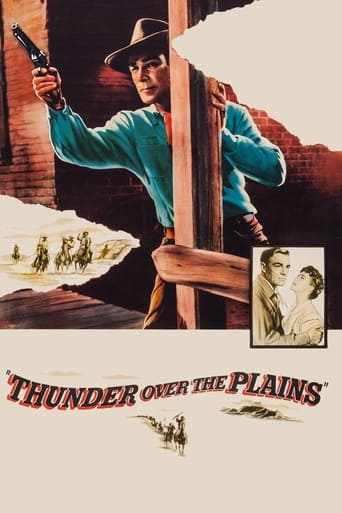
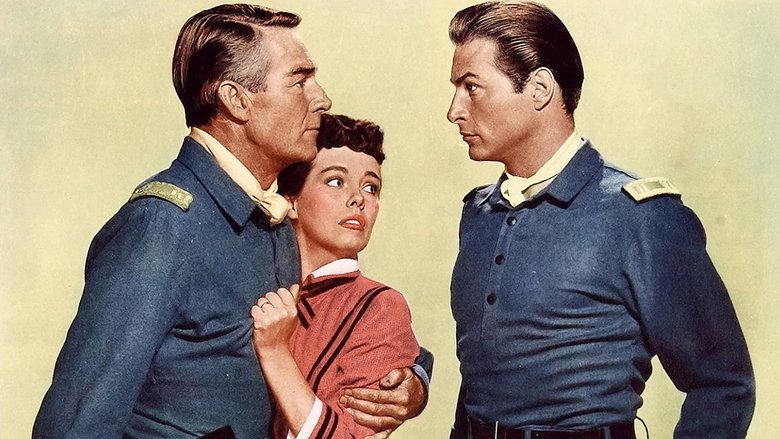
Thunder Over the Plains (1953)
Set in 1869, after the Civil War, Texas had not yet been readmitted to the Union and carpetbaggers, hiding behind the legal protection of the Union Army of occupation, had taken over the state. Federal Captain Porter, a Texan, has to carry out orders against his own people. He brings in the rebel leader Ben Westman whom he knows is innocent of a murder that he is accused of. In trying to prove his innocence, Porter himself becomes a wanted man.
Watch Trailer
Cast
Similar titles
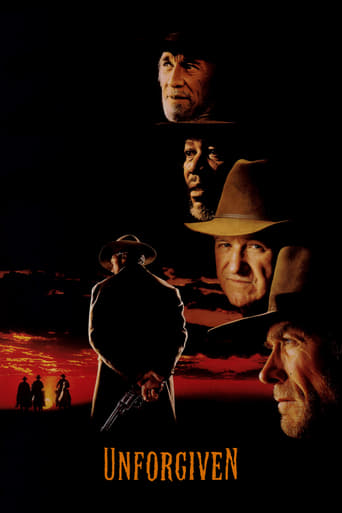
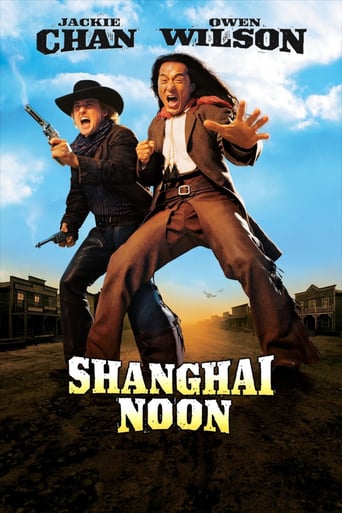
Reviews
To me, this movie is perfection.
Just perfect...
Am i the only one who thinks........Average?
By the time the dramatic fireworks start popping off, each one feels earned.
Randolph Scott plays it perfectly straight as a post-war captain in the Union Army, stationed in Texas and a Southerner himself. He and his wife, Phyllis Kirk, are uncomfortable with their duties. Scott is supposed to protect the civilian authorities from the depredations of a gang led by Charles McGraw. But the civilians -- the wide-eyed and trembling Elisha Cook, Jr., and his dominant partner, the sneering and treacherous Hugh Sanders -- are worse than the gang. They overtax the locals, buy cotton for one tenth what they sell it for after they ship it to New York. For Scott, this is known as "role conflict," when a person is caught between two non-concordant roles -- loyal Texan and loyal Army officer. For the South, this is known as "reconstruction."Nobody knows how Lincoln might have handled reconstruction since he was assassinated at the end of the war. (He'd said the Southern states would be welcomed back into the union "as if they'd never left.") His successor, Andrew Johnson, was an unregenerate racist and a barely literate ex tailor who mismanaged the deal as best he could. His earnest hope was that the white aristocrats of the South, being gentlemen, would reestablish order and the slaves, now free, would assume their accustomed place as subordinates and servants. It didn't work out. Reconstruction was a disaster and order was maintained by the presence of Army troops for years. Seven years after the year of this movie, 1869, Rutherford B. Hayes found himself in a controversy concerning the electoral college and the popular vote, and apparently made a deal to withdraw the Army from the Southern states in return for the presidency. For the next ninety years the South would remain solidly Democratic and segregated.It's in this historical context that the movie's particular interest lies. It's not just another Western with a good sheriff against a band of evil outlaws and cattle rustlers. The role conflict that Randolph Scott was in was very real and generated by political circumstances. No nonsense about who's the fastest draw around here.It's one of Scott's best performances, full of complexity. The villains are clearly identified -- Cook and Brand, that scurrilous duo of miscreants. The movie's sympathy is obviously with the native Texans, most of whom are men of principle, including the gang leader, McGraw. He holds up the shipment of that tainted cotton all right, but he doesn't keep it for himself. He evidently returns it to those who rightly own it or he burns it.Scott is joined by an arrogant officer, Lex Barker, who does everything wrong and who puts moves on Scott's wife. He's another unlikable villain. (You can always tell the villains because they have no sense of humor.) Lex Barker does not perform celluloid magic but he's stolid in the part. As Scott's wife, Phyllis Kirk must have been genuinely uncomfortable. Stuck out there on the Texas plains, with her elegant accent and aristocratic features. She must have wondered what life was all about, how to cope with it all, how to live in the unfolding moment. (Her birth name was not Kirk but Kierkegaard.) It has its Western conventions but it's an attempt at a serious movie about a serious subject and Scott handles it well.
Thunder Over The Plains starts with the same premise as John Wayne's Red River and Randolph Scott's earlier film, The Texans. That is the corrupt rule of carpetbaggers post the Civil War. But there are no large herds of cattle to be driven north for profit to escape the burdensome taxes laid down by the occupying carpetbagger civil servants and the army to back them up. Randolph Scott is a Union army captain, but also a Texan and he sees both sides. Henry Hull is his put upon commanding officer and Charles McGraw plays a leader of a local gang who have risen up like Robin Hood among the oppressed. These guys aren't Ku Klux Klan nightriders by any means though.Our villains are Hugh Sanders and Elisha Cook, Jr. a pair of scurvy lowlifes if there ever were. They've got quite the little self perpetuating racket. The more they extort, the more McGraw raids, the more Sanders and Cook cry that the army has to stay in Texas. Just about anything is blamed on McGraw and his men.There's also a domestic crisis of sorts with newly arrived captain Lex Barker, an arrogant sort who was on duty in Washington and would like to get back there. Barker's bored and he makes a play for Phyllis Kirk who is married to Randolph Scott. Since they don't like each other from the beginning that only increases the problem.Andre DeToth who did several westerns including a few with Randolph Scott brought home a good one here. With themes like an attempt at adultery here, this was not a western for the Saturday matinée kiddie trade. DeToth's best in my opinion is one called Ramrod with Joel McCrea and his then wife Veronica Lake, but this one is pretty good too.DeToth also learned from the best and the final shootout scene with Scott against four men bears no small resemblance to High Noon, released a year earlier.Definitely one of Randolph Scott's best westerns of the Fifties.
I love Randolph Scott Westerns as they usually manage to rise above the many, many mediocre and derivative films in the genre. Throughout the 1930s-60s, Hollywood churned out a bazillion of cowboy films and after a while, they almost all look the same to me--with the same clichés and myths about the West and the same general story lines. Yet, due to his excellent acting and believable persona, Scott was able to make a long string of these films and they almost always managed to be a bit better--and some even went on to become classics.Sadly, THUNDER OVER THE PLAINS is no classic. Part of it has to be because the story line is so familiar and unexciting. I've seen a ton of films about the Reconstruction era and this one isn't much to speak of--especially since it is so historically inaccurate. I am an American History teacher and understand that the Reconstruction era is highly misunderstood. Starting with such films as BIRTH OF A NATION, several decades of Hollywood films followed a fictitious Southern revisionist version of history. In this revisionist world, the Southerners were all gentlemen (forget that many owned slaves) and the dreaded "dang Yankees" in the form of "Carpetbaggers" flooded the South to take advantage of everyone. In D.W. Griffith's BIRTH OF A NATION, these evil swine were only eventually put in their place by the brave men of the cloth. No, not the clergy, but the Ku Klux Klan--a hate group! While there is thankfully no Klan in this film to save the day, there certainly are the evil carpetbaggers and it's up to good Union officer Scott to save the day for the poor Southerners. Folks, this didn't happen--never did.Even if the story weren't a lot of historical hogwash, the film is tepid and ordinary throughout. The characters seem too often "black or white" and Lex Barker seemed more like a psycho than an officer (and probably would have been hanged for his actions). Please, give me a film without the one-dimensional characters AND Randolph Scott, such as RIDE THE HIGH COUNTRY, RIDE LONESOME or THE TALL T--not this mediocre and tepid film.
"Thunder Over the Plains" is another of those enjoyable little 80 minute color westerns turned out by Randolph Scott in the 1950s. Competently directed by Andre deToth, the film keeps moving along and doesn't get too bogged down with the domestic issues. And there's another of those great supporting casts of recognizable faces.This one takes place in Texas following the U.S. Civil War before the state re-entered the Union and was governed by the occupying Union Army. Capt. David Porter (Scott) is charged with the protection of government officials in their dealings with local land owners. The only trouble is these officials are nothing but carpetbaggers who over tax and cheat the farmers out of their property.Chief among the carpetbaggers are Tax Commissioner Joseph Standish (Elisha Cook Jr.) and cotton broker H.L. Balfour (Hugh Sanders). Porter, a native Texan, is accused of bias towards the settlers by his commanding officer, Lt. Col. Chandler (Henry Hull) who doesn't want to upset his superiors as he is within two years of retirement.Aiding the settlers is Ben Westman (Charles McGraw) a sort of "Robin Hood" who with his gang that includes Faraday (Lane Chandler), Kirby (Fess Parker) and henchman John Cason foil Balfour at every turn. Col. Chandler orders Porter to bring Westman in.Trigger happy Captain Bill Hodges (Lex Barker) arrives and is placed under Porter's command. He also has designs on Porter's attractive wife Norah (Phyllis Kirk). Hodges moves on Westman's hideout against Porter's orders and allows the bandit to escape. Hodges however, shoots Kirby in the back without provocation.When Standish witnesses Balfour murder a cohort, he becomes nervous and threatens to inform the authorities. Balfour murders Standish and pins the blame on Westman. In order to clear his name Westman allows Porter to take him in on Porter's promise to find the guilty party. Col. Chandler gives Porter only three days before he orders Westman hanged. After Hodges bungles another battle with Westman's gang, Chandler orders that Westman be hung the next morning. Porter goes to Westman's gang for help forcing a final showdown with Balfour and his gunman Conrad (James Brown) where.....................................Scott gives his usual excellent stiff jawed performance. Unusual for him, he remains in uniform for most of the film. Barker had recently finished his "Tarzan" series (1948-52) for RKO in which he replaced Johnny Weissmuller. Henry Hull is probably best remembered for "Werewolf of London" (1935) in which he played the title role.Fess Parker would shortly become Davy Crockett for Disney and later play Daniel Boone on TV. James Brown (not the football player or the Soul Singer) is best remembered for playing Lt. Rip Masters on the long running "Rin Tin Tin" TV series. Elisha Cook appeared in "Shane" the same year as "Torrey" the settler who is gunned down by Jack Palance. Also in the cast are Trevor Bardette as a settler and Earle Hodgins as a fast talking auctioneer.
